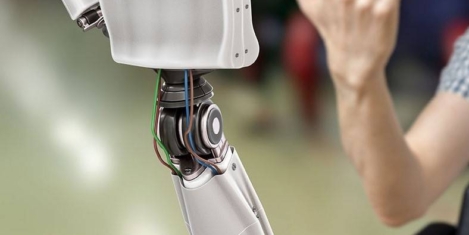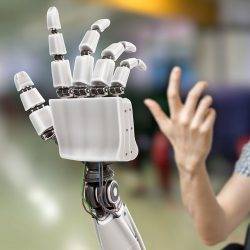To provide the best experiences, we use technologies like cookies to store and/or access device information. Consenting to these technologies will allow us to process data such as browsing behaviour or unique IDs on this site. Not consenting or withdrawing consent, may adversely affect certain features and functions.
The technical storage or access is strictly necessary for the legitimate purpose of enabling the use of a specific service explicitly requested by the subscriber or user, or for the sole purpose of carrying out the transmission of a communication over an electronic communications network.
The technical storage or access is necessary for the legitimate purpose of storing preferences that are not requested by the subscriber or user.
The technical storage or access that is used exclusively for statistical purposes.
The technical storage or access that is used exclusively for anonymous statistical purposes. Without a subpoena, voluntary compliance on the part of your Internet Service Provider, or additional records from a third party, information stored or retrieved for this purpose alone cannot usually be used to identify you.
The technical storage or access is required to create user profiles to send advertising, or to track the user on a website or across several websites for similar marketing purposes.
 New results from Wildgoose’s Flexible Working survey suggests that a significant number of UK employees are seeking out flexible working to better juggle life both in and out of work, without compromising productivity. The latest findings follow on from the organisation’s other successful insights surveys exploring diversity & inclusion and mental health in the workplace. (more…)
New results from Wildgoose’s Flexible Working survey suggests that a significant number of UK employees are seeking out flexible working to better juggle life both in and out of work, without compromising productivity. The latest findings follow on from the organisation’s other successful insights surveys exploring diversity & inclusion and mental health in the workplace. (more…)














 Workers continued use of unapproved apps in the office, including Instagram, Facebook Messenger and Snapchat, to communicate with colleagues as well as friends and family is putting their organisations at risk of cyber-attack, new research suggests. Four in ten employees (41 percent) admit to using Instagram for more than two hours each day, despite the app being banned in almost half of UK organisations. The majority of employees are well aware that certain apps are not approved for workplace use, but this hasn’t stopped them breaking the rules.
Workers continued use of unapproved apps in the office, including Instagram, Facebook Messenger and Snapchat, to communicate with colleagues as well as friends and family is putting their organisations at risk of cyber-attack, new research suggests. Four in ten employees (41 percent) admit to using Instagram for more than two hours each day, despite the app being banned in almost half of UK organisations. The majority of employees are well aware that certain apps are not approved for workplace use, but this hasn’t stopped them breaking the rules.




 Young people leaving education and looking for work may be missing out on potential employment opportunities by failing to consider Small and Medium Enterprises (SMEs) and the advantages they offer, new research from Santander UK claims. ‘Gen Z’ and Millennials do not believe SMEs offer the same job security or salary as large businesses, meaning just a third (35 percent) of young people leaving education in 2018 want to work for smaller employer, and an even smaller proportion, just one in six (18 percent), want to work for a start-up or micro business. The most popular career aspirations for Generation Z and Millennials are to work for a large firm (51 percent), the public sector (51 percent) or a global multinational (49 percent), because of a perceived lack of job security (56 percent). There is also the belief that SMEs offer a lower salary (46 percent) and fewer opportunities for progression than large companies (33 percent). Yet the majority (70 percent) of SMEs are actively recruiting for entry level roles, whether that be graduates (43 percent), further education leavers (36 percent) or school leavers (35 percent).
Young people leaving education and looking for work may be missing out on potential employment opportunities by failing to consider Small and Medium Enterprises (SMEs) and the advantages they offer, new research from Santander UK claims. ‘Gen Z’ and Millennials do not believe SMEs offer the same job security or salary as large businesses, meaning just a third (35 percent) of young people leaving education in 2018 want to work for smaller employer, and an even smaller proportion, just one in six (18 percent), want to work for a start-up or micro business. The most popular career aspirations for Generation Z and Millennials are to work for a large firm (51 percent), the public sector (51 percent) or a global multinational (49 percent), because of a perceived lack of job security (56 percent). There is also the belief that SMEs offer a lower salary (46 percent) and fewer opportunities for progression than large companies (33 percent). Yet the majority (70 percent) of SMEs are actively recruiting for entry level roles, whether that be graduates (43 percent), further education leavers (36 percent) or school leavers (35 percent).
 Improved living standards, deflating pension pots and legal protection against age discrimination have all helped to nudge up the retirement age. The result is that for the first time since the Industrial Revolution five generations of employees are now working side by side. According to a new survey, two thirds of organisations (66 per cent) say that an age diverse workforce helped the company to have a more comprehensive skillset and knowledge base and more than seven in ten (71 per cent) felt that a multi-generational workforce brought contrasting views to their organisation. However, in the YouGov survey of middle market businesses commissioned by RSM, four in ten companies (41 per cent) said that a multi-generational workforce also increased the risk of conflict in the workplace.
Improved living standards, deflating pension pots and legal protection against age discrimination have all helped to nudge up the retirement age. The result is that for the first time since the Industrial Revolution five generations of employees are now working side by side. According to a new survey, two thirds of organisations (66 per cent) say that an age diverse workforce helped the company to have a more comprehensive skillset and knowledge base and more than seven in ten (71 per cent) felt that a multi-generational workforce brought contrasting views to their organisation. However, in the YouGov survey of middle market businesses commissioned by RSM, four in ten companies (41 per cent) said that a multi-generational workforce also increased the risk of conflict in the workplace. 










